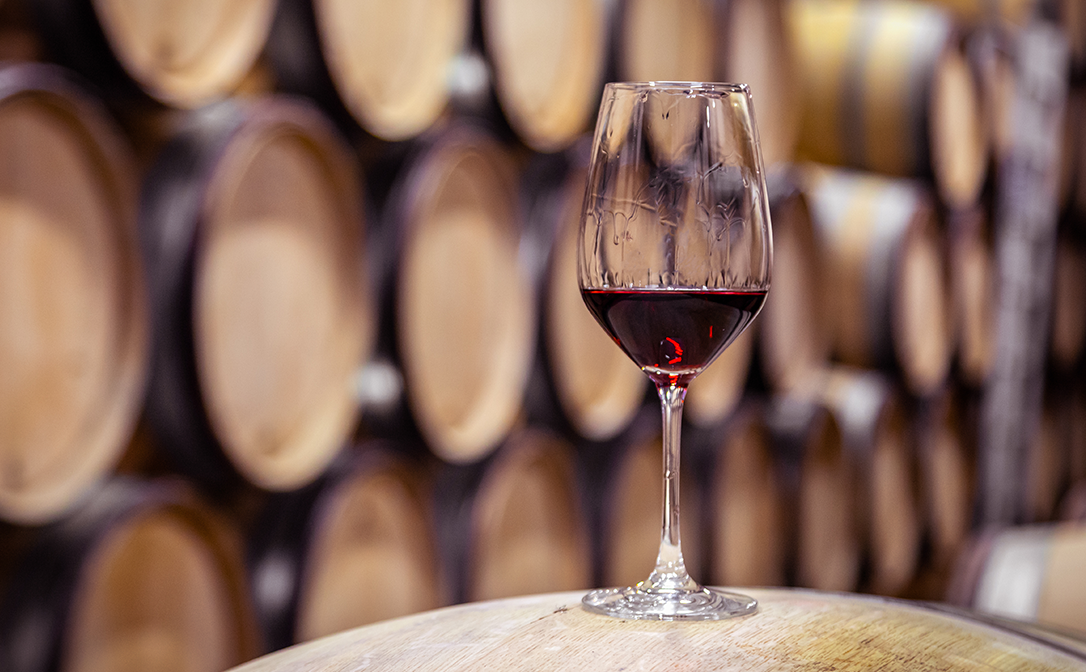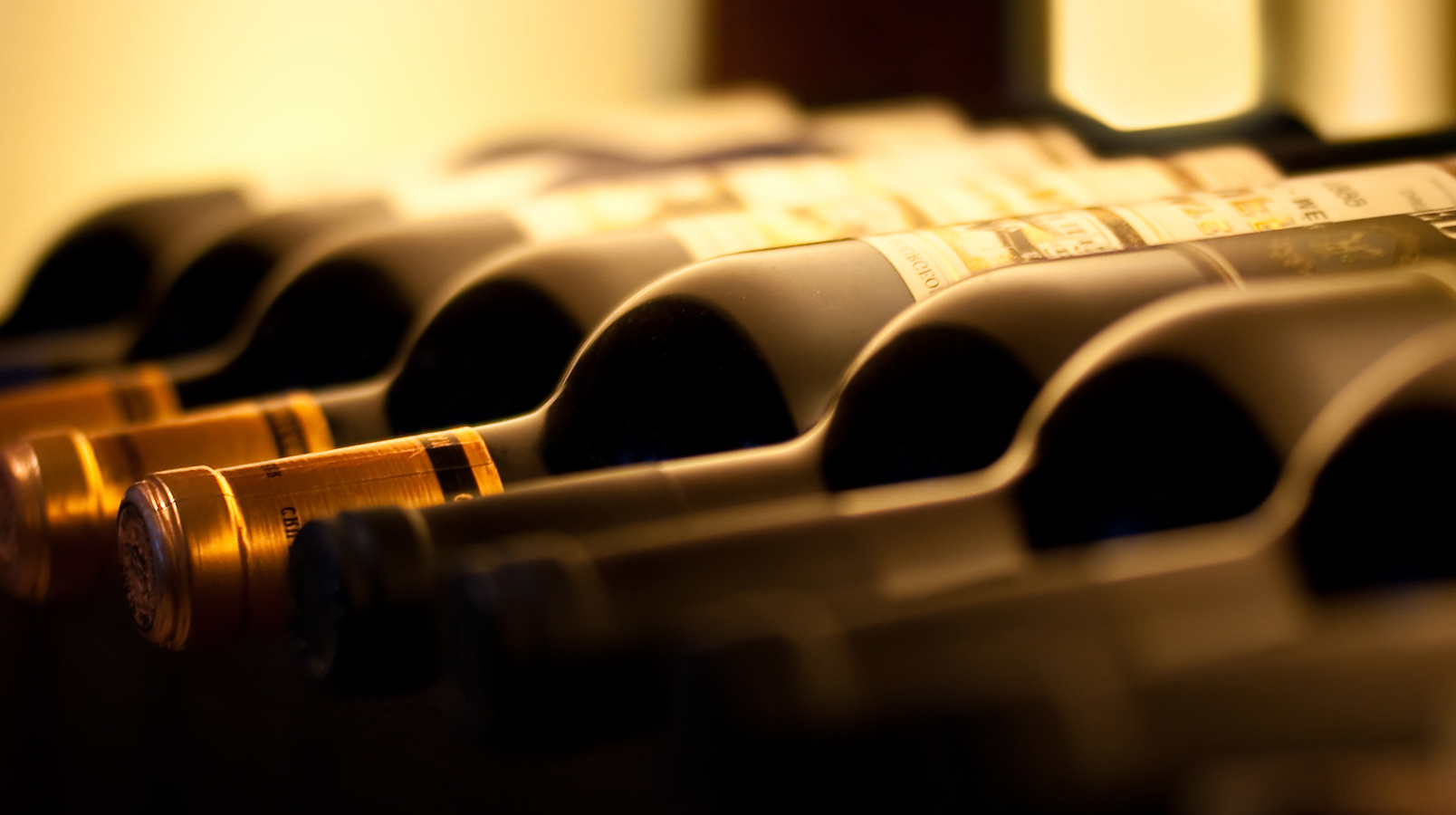For as long as wine has been made, wine has been aged. From the sweet ‘straw wines’ aged by the Ancient Greeks to modern temperature-controlled cellars, ageing has always been part of wine culture. But why do we do it? The reasons for ageing wine span the chemical, philosophical and the financial. Let’s dig into them, and bust some myths along the way.
This post was prepared by WSET educator Anjali Douglas DipWSET. If you'd like to learn more, check out Anjali's webinar WSET Bitesize: Why do you age wine? on our YouTube channel.
Does all wine get better with age?
Let’s start with one of the big myths of the wine world – that all wines improve with age. The vast majority of wines sold are actually designed for immediate consumption, either because they have been aged already before being released, or they do not have the qualities needed to withstand prolonged ageing.
Wines that do have the ability to age tend to have two things in common:
- Plenty of flavour intensity
- Natural preservative qualities (e.g. high acidity levels, high tannin levels)
Within the small number of wines that are ageworthy, the common consensus is that they follow a ‘bell curve’ – too young, just right, too old. But how long to wait before the wine hits its peak can remain a mystery, and a risk – there’s only one way to find out!
Want to teach your palate to predict whether a wine will improve with age? The WSET Level 3 Award in Wines will develop this tasting skill and many more.
What happens as a wine ages?
The aromas that dominate newly made wines are typically fresh fruits, flowers and herbs. These ‘primary’ aromas can change or disappear over time. Sensory analyst Sietze Wijma explains:
"Some aromas fade as a result of bottle ageing. For example, flavour compounds responsible for aromas of rose (geraniol) and banana (isoamyl acetate) tend to disappear. Over time, these compounds slowly break down in the bottle to form flavourless material."
But there is gain as well as loss. Over time, a tiny amount of oxygen will find its way into the wine, causing the wine to slowly oxidise and new ‘tertiary’ aromas to develop. Sietze gives us some examples:
"Notes of walnut and caramel develop from reaction between flavourless compounds and oxygen. The primary compound held responsible for these aromas is sotolon. Other aromas associated with oxygen exposure are almond (caused by benzaldehyde) and honey (caused by phenylacetaldehyde)."
The structure of a wine will also change over time. In reds, mouth-drying tannins will taste softer and smoother due to a process called polymerisation. Some whites develop a texture that can be described as waxy or oily. Eventually, wines become a world away from the bold, fruity style many of us are used to, instead becoming savoury and delicate.
Why do some people age wine?
Tasting aged wines can be a very special experience. As well as the chemical changes that take place over time, there is a less tangible aspect to why we age wine. One reason wine can become an obsession is its ability to transport us not only to different places, but also through time.
Queena Wong, a fine wine collector, explains why she likes to age wine:
"There is something magic that happens when you give wine the time to mature. It is like a human being - a baby is different to a toddler before transforming into unruly adolescents and finally into a mature adult. It’s the same DNA though there is something more palatable with maturity! The roughness and the edges of youth are gone and you are left with the pure essence of soul. This is wine."
Wine never remains in a constant state, and ageing wine is never straightforward or entirely predictable. Though some elements of ageing wine are well understood, there is still much to discover.

Which wines should be aged?
For some styles, the flavours that result from ageing are an important part of the wine’s character, so the wine won't be sold until these have developed. Producers may age their wine in vessels such as oak barrels, clay amphora or cement tanks prior to bottling, and some wines are aged further in bottle prior to release.
For some producers this is a choice, for others it is a legal requirement. For example, red ‘Gran Reserva’ Rioja must be aged for 60 months before release and Vin Jaune wines of the Jura may only be sold from the January seven years after harvest. This time inevitably has an effect on the final price of the wine.
Some wines where ageing is important to the style:
- Vintage Champagne
- Madeira
- Age Indicated Tawny Port
- Barolo
- Tokaji Aszú
- Vin Jaune
- Grand Cru Classé Bordeaux
Some of these wines can improve further in the bottle once purchased, under the right conditions.
Some wines that are not designed for ageing:
- Moscato d’Asti
- Provence Rosé
- Light styles of Sauvignon Blanc
- Alternative format wines e.g. bag in box or can
How to age wine
It is possible for you to age wine successfully at home, but to do this you need to make sure:
- The wine is kept at a cool, constant temperature
- The wine is kept away from bright light and vibrations
These conditions can be hard to achieve in a modern household, especially in urban settings. Some wine collectors hire temperature-controlled wine storage, or ask their broker or retailer to store their wine for them until the time is right.
Can you age wine as an investment?
As well as a drink, certain wines can be viewed as luxury products and used as an indicator of status and wealth. Some people buy wine with the sole intention of ageing it and selling it on later, hoping to make a profit. The idea is that the longer you keep hold of it, the more the supply of that wine will fall as more bottles are opened. Its rarity therefore increases, causing the price to increase.
But be careful - any one bottle of wine generally has countless substitutes for consumers. Wines chosen for investment need to be very specific, and known to sell well on the secondary market. These wines are generally super-premium in price and have developed iconic status. Even then, as tastes and trends change over time, there is no guarantee of making a profit.
Wines for special occasions
But maybe taste or turning a profit are not your priorities. Maybe instead you’re looking to mark an occasion with a special bottle from a particular vintage. Birth years, anniversaries, and birthdays are moments when memories and great company are more important than the wine’s chemical composition or retail value. Open up those special bottles, and enjoy!
Thank you to Anjali Douglas, Sietze Wijma and Queena Wong for their insights.


